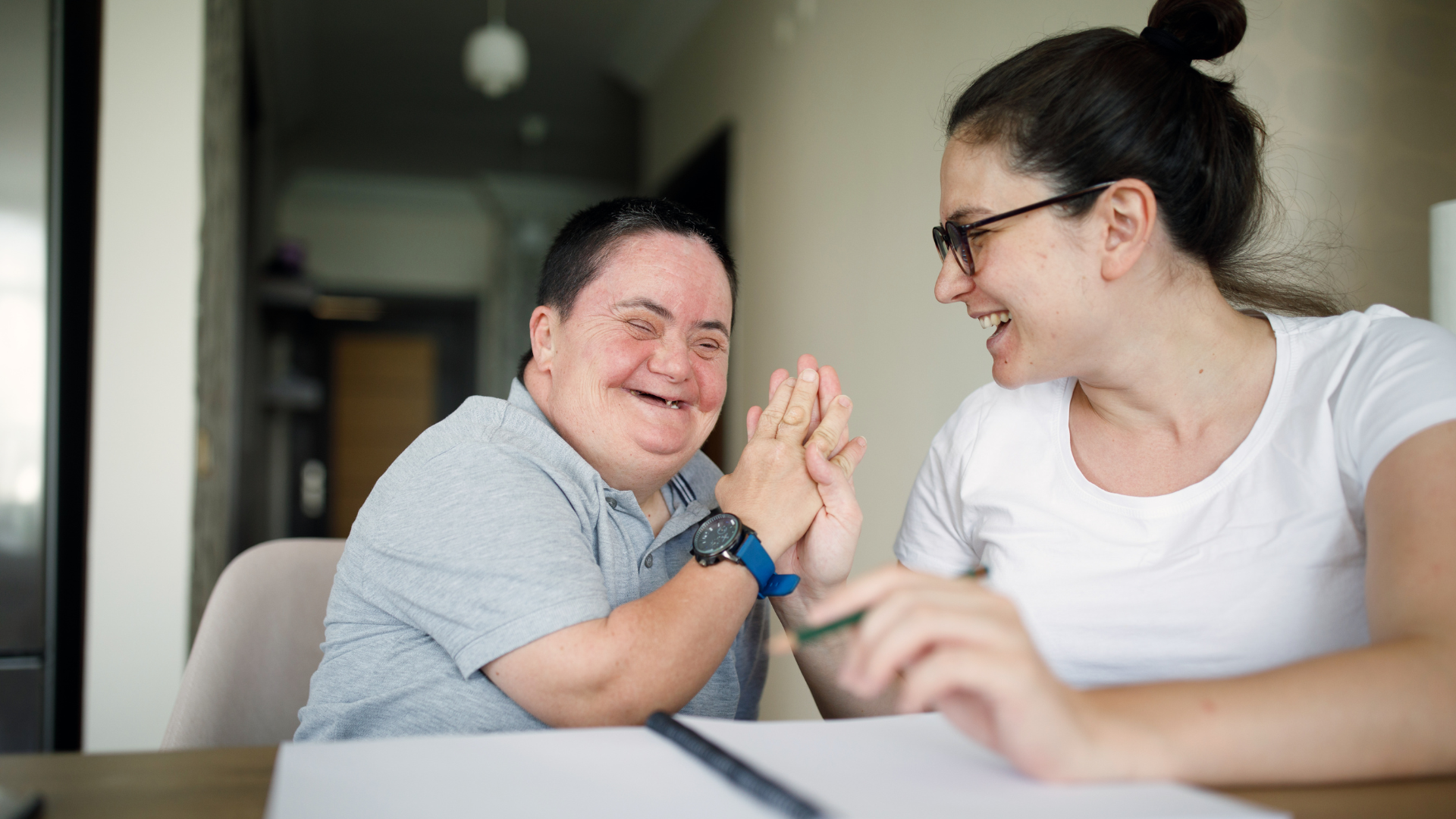People With I/DD are Left Out of Clinical Research Trials: Why it Matters & What’s Being Done
Share this pageThis article was originally published in the February 2024 edition of EP (Exceptional Parent) Magazine.
“Clinical trials should, to the extent possible, enroll a population that is representative of the diversity of the population that will use the medical product, if approved[I]. ”Makes sense, right? Unfortunately, people with intellectual and developmental disabilities (I/DD) are typically left out of clinical trials. And they are not alone. Other historically underrepresented populations include people with physical disabilities and people with mental illness.
What is a Clinical Trial?
Clinical trials provide critical evidence regarding whether a medical product such as a medication or medical device is safe and effective.
What are the Barriers to Participation in Clinical Trials for People with I/DD?
According to an article published by the American Institutes for Research (AIR®) Center on Knowledge Translation for Disability and Rehabilitation Research[ii], approximately three-quarters of clinical trials funded by the National Institutes of Health directly or indirectly excluded adults with intellectual disabilities. Some study exclusions specifically disallowed participation by those with cognitive challenges, reduced functional capacity, or the inability to read or write. Additionally, researchers may not have considered the need for accessible study materials, the support needed for people with I/DD to participate meaningfully or the importance of ensuring people with I/DD, not proxies, provide direct input as study participants.
Why Have People with I/DD Historically Been Underrepresented in Clinical Trials?
Concerns about informed consent and the capacity to understand the benefits and risks of clinical trial participation and the potential for exploitation are often cited as reasons for excluding people with I/DD from clinical studies. While important, these risks can and should be mitigated through careful attention to inclusive study design.
Why is This Such a Problem?
Excluding people with I/DD from clinical trials means the treatments used for a variety of conditions have not been evaluated to determine the benefits or the risks of use in people with specific developmental conditions. One example of this is research involving drugs used to treat Alzheimer’s disease. Even though a high percentage of people with Down syndrome will eventually develop dementia by age fifty-five, very few clinical trials involving Alzheimer’s disease have included people with Down syndrome[iii].
Hope is on the Horizon
In September of 2023, the National Institutes of Health (NIH) formally designated people with disabilities as a population with health disparities, making way for greater opportunities to include people with disabilities in research efforts. “Research to understand the barriers and unmet needs faced by people with disabilities, and to develop effective interventions to address them, is needed. This designation will help to improve access to healthcare and health outcomes for all people[iv].”
In addition, the US Food and Drug Administration (FDA), the entity responsible for approving drugs and medical devices, recently sought public input into a proposal to address inequities in study design by requiring those who are conducting clinical trials to use disease prevalence and incidence data, by demographic group, to inform clinical trial enrollment by those who are expected to use a particular drug or device. This means information about disability status will need to be considered in study design to ensure people with disabilities are not unnecessarily excluded.
As advocates for people with I/DD, we play a critical role in supporting full and meaningful participation in all activities-including clinical research trials. Understanding the history of exclusion and the efforts underway to promote inclusive study design and implementation will help to ensure people with I/DD have the same opportunities as others to participate in research activities.
Lorene Reagan is the Director of Public Relations at IntellectAbility.
[i] Public Workshop to Enhance Clinical Study Diversity. 2023. US Food and Drug Administration & Clinical Trials Transformation Initiative. https://ctti-clinicaltrials.org/wp-content/uploads/2023/12/FDORA-Diversity-Primary-Slide-Deck-11.28.-23-FINAL.pdf
[ii] Inclusive Methods for Engaging People with Intellectual and Developmental Disabilities in Research Practices. 2023. American Institutes for Research® (AIR®) Center on Knowledge Translation for Disability and Rehabilitation Research. https://ktdrr.org/products/info-briefs/KTDRR-EngagingPeopleWithI/DD-508.pdf
[iii] Excluding People With Disabilities From Clinical Research: Eligibility Criteria Lack Clarity And Justification. 2022. Health Affairs. https://www.healthaffairs.org/doi/10.1377/hlthaff.2022.00520
[iv] NIH designates people with disabilities as a population with health disparities. 2023. National Institutes of Health (NIH). https://www.nih.gov/news-events/news-releases/nih-designates-people-disabilities-population-health-disparities



